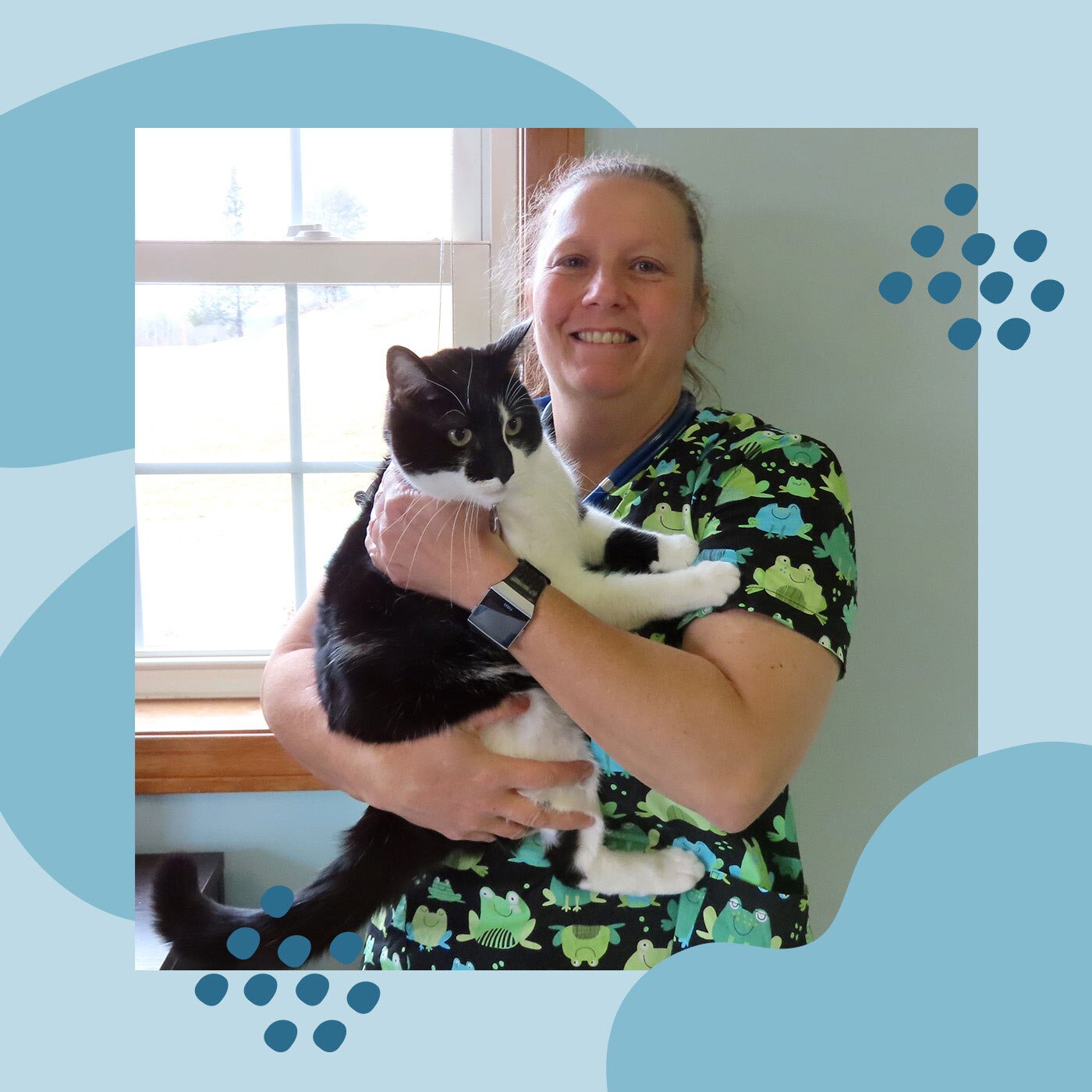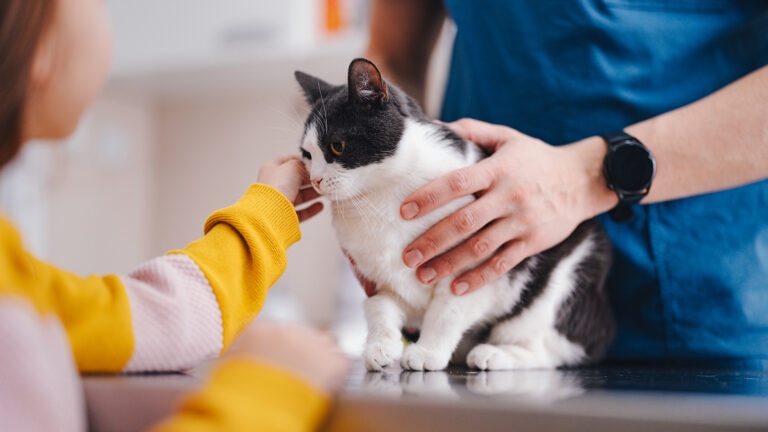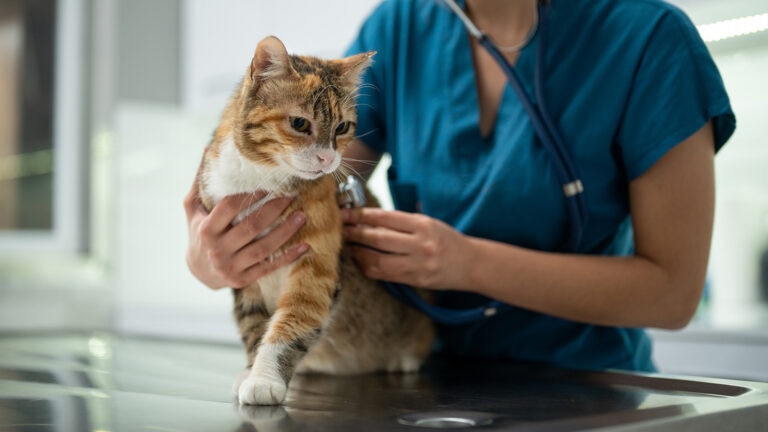I’m a Cat Veterinarian Who’s Allergic to Cats. Here’s How I Deal (And So Can You)

Photo by iStock.com/Chewy Studios
It all started a few weeks after my graduation from veterinary school. I went into a routine appointment with a lovely young Siamese cat. Almost immediately, I noticed my eyes beginning to swell and itch. Then came the sneezing and the running nose. By the time I finished the appointment, I could hardly open my eyes and was having trouble breathing.
You guessed it. I had developed a fierce allergic reaction to my favorite patients: cats.
I’ve been a cat vet for over 25 years now, and I’m still severely allergic to cats. But I love what I do, and I was determined not to change my career or my lifestyle. Here’s how I found a solution—and how you can, too.
No Easy Answers
Twenty-five years ago, options for people with cat allergies were few and far between. My symptoms quickly progressed to where I was almost constantly ill. I developed severe asthma and would become winded just climbing the flight of stairs to my house.
It seemed like there would be no way to move forward. Doctors really weren’t a lot of help. I remember clearly one visit to a dermatologist. I brought a massive list with me, naming all the drugs I had tried that had not worked, to show him that I was in need of something new and different.
His honest assessment: I was going to need to find a different career.
My response: I was actually going to need to find different drugs (and ultimately, a different doctor).

Nevertheless, I Persisted
You might be asking yourself why I bothered to go through all of this, when I could simply avoid cats. But if you’re a cat person, you know why: There is just something magical about them. I’ve never lived without cats. There is a mystery and intelligence when you look into their eyes. My cat allergies were causing me grief, sure, but that was nothing compared to how I’d suffer without cats at all.
Eventually, I found an open-minded doctor who realized that I wasn’t going to change my career. He advised me to wear a special respirator mask. I also showered three times a day. All of my carpets had to be pulled up—both at home and at work—and replaced with hard flooring. We also tried a cascade of medications ranging from antihistamines to steroids to everything in between.
Along the way, I decided that I actually really loved working with cats. I became the only board-certified cat veterinarian in the state of Maine, spending most of my days treating cats. I also added more cats to my household, eventually topping off at 15 felines. Quite a few people—including physicians and other veterinarians—thought I was certifiably crazy. But I was determined.

What Works for Me
The process of managing my allergy symptoms took years, and it’s still a work in progress. Has it been a challenge? Absolutely. But I was determined to make it work, and now, things are better than ever.
There are constantly new developments being created to help people manage allergens in the environment. A new cat food from Purina, LiveClear, claims to help reduce allergens in cat hair and dander. If effective, it would be a huge breakthrough in the management of cat allergens.
I’ve embraced lifestyle changes like selecting home furnishings around my allergies, rather than my tastes. Things need to be easy to clean and cleaned often.
I’ve managed to get rid of the “Darth Vader” respirator mask that I once needed when working with cats and cleaning my home. I still can’t allow cats near my face. That can be a challenge while sleeping, so my current kitties aren’t allowed in my bedroom at night.
The medications that I take are now targeted to my current symptoms, which makes them more manageable than daily drugs with side effects. However, there are some times of the year when I need to medicate daily, particularly when my asthma becomes a problem, and windows must remain closed due to the winter weather. If you’re allergic to cats, that probably sounds familiar.
There are certainly flare-ups, and my staff can tell as soon as I walk through the door if it is going to be a “bad day.” But now, those days are fewer and farther between than ever.
Step by Step: How I Manage Cat Allergens
- Replace carpets with hardwood floors
- Shower frequently
- Make your bedroom a cat-free zone
- Open windows to ventilate your home
- Wear a respirator mask
- Talk to your doctor about medications and their side effects
- Try feeding Purina LiveClear cat food
If you have cat allergies but love cats and want to share your life with them, don’t give up. Find a sympathetic physician and begin the process of discovering what works for you. It can be done—I’m living proof! It may just take a lot of trial and error, patience, and a few (or few thousand) sneezes along the way.











